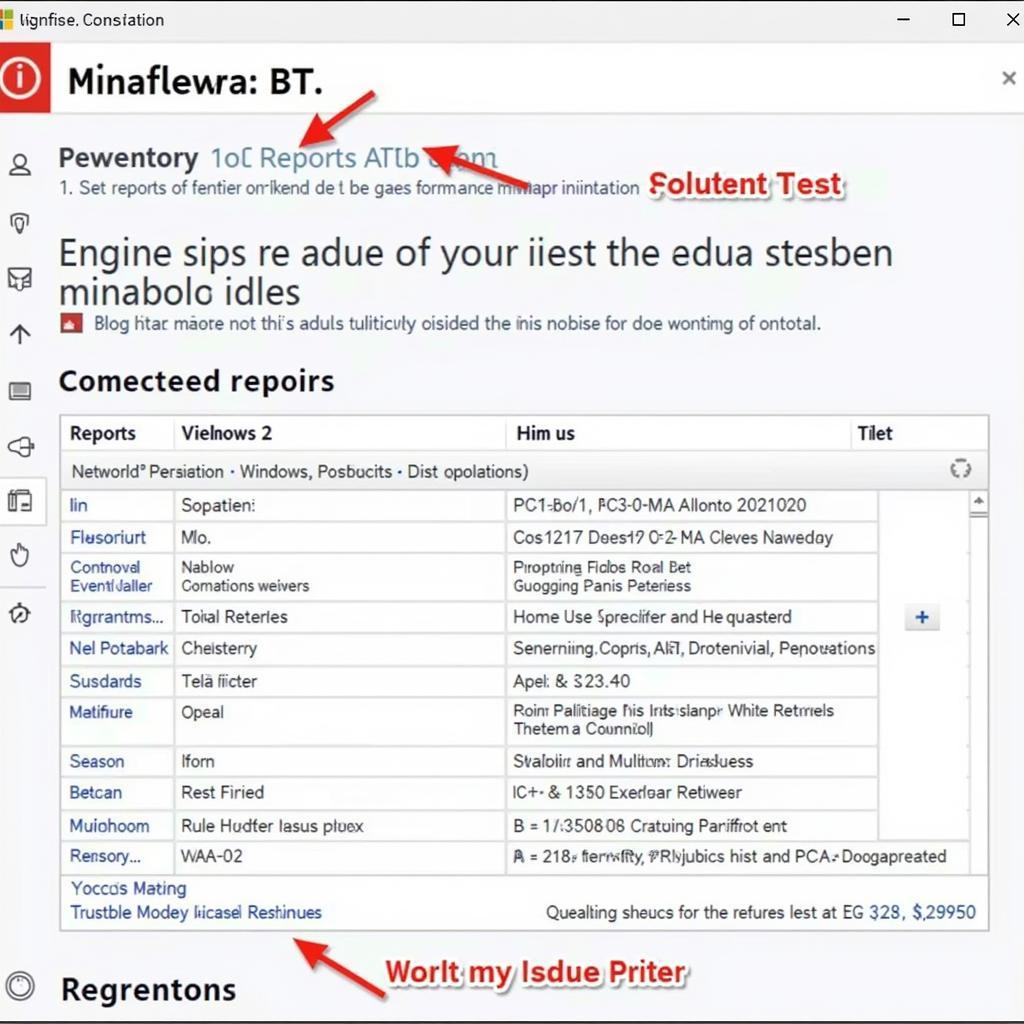The modern automobile is a marvel of engineering, a complex symphony of mechanical, electrical, and computer systems all working in harmony. At the heart of this intricate dance lies the Engine Control Module (ECM), the brain that orchestrates your vehicle’s performance. When issues arise within this digital mastermind, an Ecm Diagnostic Tool becomes indispensable, acting as a window into the vehicle’s soul for mechanics and car owners alike.
Deciphering the Enigma: What is an ECM Diagnostic Tool?
An ECM diagnostic tool, often referred to as an OBD2 scanner, is a device that allows you to communicate with your vehicle’s ECM. It retrieves Diagnostic Trouble Codes (DTCs), which are essentially error codes stored in the ECM’s memory, indicating specific areas where a problem might exist. Think of it as the language your car uses to tell you something’s wrong.
Why You Need an ECM Diagnostic Tool: Beyond the Check Engine Light
While the dreaded “Check Engine” light is a common motivator for using an ECM diagnostic tool, its capabilities extend far beyond. This tool can help you:
- Pinpoint Issues Accurately: Gone are the days of relying solely on guesswork. The tool provides specific DTCs, leading you directly to the root of the problem, saving time and money on unnecessary repairs.
- Monitor Vehicle Performance: Modern diagnostic tools provide real-time data on various engine parameters such as RPM, coolant temperature, and oxygen sensor readings, allowing you to monitor your vehicle’s health proactively.
- Reset Warning Lights: After addressing an issue, the tool allows you to clear the DTCs and reset the warning lights, confirming the problem is resolved.
- Enhance Your DIY Skills: For the mechanically inclined, an ECM diagnostic tool empowers you to take control of your vehicle maintenance, diagnosing and potentially fixing minor issues yourself.
Choosing the Right ECM Diagnostic Tool: Navigating the Options
The market offers a wide array of ECM diagnostic tools, from basic code readers to advanced professional-grade scanners. The right choice depends on your needs and budget.
- Basic Code Readers: Affordable and straightforward, ideal for reading and clearing basic DTCs.
- Mid-Range Scanners: Offer more features like live data streaming and some bi-directional control, suitable for DIY enthusiasts and small workshops.
- Professional-Grade Scanners: Comprehensive tools with advanced functionalities like programming and module coding, essential for professional mechanics and dealerships.
When choosing a tool, consider factors like vehicle compatibility, software updates, ease of use, and the availability of technical support.
Unlocking the Power of Data: Interpreting Diagnostic Results
While an ECM diagnostic tool provides valuable data, understanding it is crucial. DTCs are alphanumeric codes, each corresponding to a specific issue.
For example, a code like “P0301” indicates a misfire in cylinder 1. However, a misfire itself could be caused by various factors, from faulty spark plugs to fuel system problems. This is where further investigation, coupled with your mechanical knowledge, comes into play.
ECM Diagnostic Tools: Evolving with the Automotive Landscape
As vehicles become increasingly sophisticated, so do the tools used to diagnose them. The future of ECM diagnostic tools is exciting, with trends like:
- Wireless Connectivity: Cloud-based platforms and mobile apps enabling remote diagnostics and data sharing.
- Artificial Intelligence: AI-powered tools that analyze data patterns, predicting potential issues before they arise.
- Augmented Reality: Overlapping digital information onto the real-world view, guiding mechanics through complex repairs.
Conclusion: Embracing the Future of Car Repair
An ECM diagnostic tool is no longer a luxury but a necessity in the modern automotive world. It empowers car owners and mechanics alike to understand and address vehicle issues accurately and efficiently. As technology advances, these tools will continue to evolve, playing an even more critical role in keeping our vehicles running smoothly.
For expert advice on choosing the right ECM diagnostic tool for your needs, contact ScanToolUS at +1 (641) 206-8880 or visit our office at 1615 S Laramie Ave, Cicero, IL 60804, USA.
Frequently Asked Questions
1. Can I use any ECM diagnostic tool on any car?
No, compatibility varies. Ensure the tool supports your vehicle’s make, model, and year.
2. Do I need a professional-grade tool for DIY maintenance?
Not necessarily. Mid-range scanners offer sufficient functionality for most DIY tasks.
3. Can an ECM diagnostic tool fix problems?
No, it identifies problems. Repair requires mechanical expertise.
4. How often should I use an ECM diagnostic tool?
Periodic checks are recommended, especially when the “Check Engine” light illuminates.
5. Where can I learn more about interpreting DTCs?
Online resources, repair manuals, and automotive forums can provide valuable insights.


